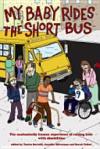If you’ve already gotten the message about Embracing Special Needs Parenthood moving to a new home, Durga’s Toolbox, please excuse the extra mail. It’s taken a few days and not so much help from WordPress to figure out how to let all of you subscribers and followers know that the migration has occurred. And if you’ve already taken the time to visit the new site and re-subscribe or re-follow, I’m sending you a big cyber-hug of gratitude.
For the rest of you, here’s the update that I believed would reach you last week. The long and short of it is that you will have to re-follow or re-subscribe if you want to keep in touch with me. I hope you do! As I say, your companionship means a lot.
There’s a change I’ve been putting off for a long time because I didn’t want to confuse anyone, but I just can’t hold back any longer. Not being able to stop one’s self is either a sign of an incredible lack of impulse control or a wonderful burst of creativity that simply won’t be checked. Hopefully this is a case of the latter.
Depending on how WordPress decides to format this, you may notice that the blog formerly known as Embracing Special Needs Parenthood looks completely different and has a new name and address, Durga’s Toolbox.
I’ve been writing about Durga for a while, why she inspires me, how I enjoy looking at this crazybeautiful life as a blessed opportunity to grow my capacity, to acquire tools and most of all, to live life fully awake. Durga reminds me that I can invite life to “bring it” and that it’ll take more than the usual skills to stay present, to stay open, to stay in the middle.
Not all entries will be about Durga’s toolbox. I just wanted to refresh the look and find an easier domain name to share. I’m also hoping to add a page about some academic research that might interest folks and I’m contemplating whether pseudonymity suits me.
P.S. To all the generous folks out there who’ve taken the time to click a “follow” or “subscribe” button: I have no idea how this address change will impact you and whether you’ll continue to get content in the way you’ve chosen. I hope it’s still coming. If not, I’ll try to find you. Your companionship means a lot.


